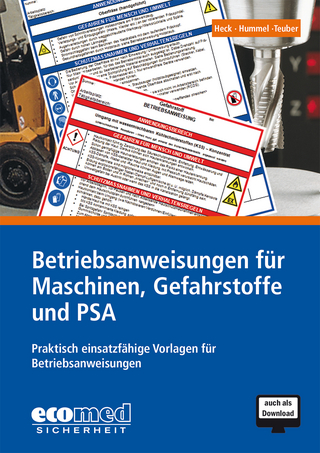
Biodsulfurization in Petroleum Refining
John Wiley & Sons Inc (Hersteller)
978-1-119-22407-5 (ISBN)
- Keine Verlagsinformationen verfügbar
- Artikel merken
Crude oil consists of hydrocarbons, along with other minerals and trace elements. Sulfur is the most abundant element after carbon and hydrogen, then comes after it nitrogen, and they usually concentrated in the higher boiling fractions of the crude oil. The presence of sulfur compounds causes the corrosion of refining facilities and catalysts poisoning. Moreover, the presence of nitrogen-compounds directly impacts the refining processes via; poisoning the cracking catalysts and inhibiting the hydrodesulfurization catalysts. In addition, both have bad impacts on the environment, throughout the sulfur and nitrogen oxide emissions. Removing this sulfur and nitrogen from the refining process protects equipment and the environment and creates a more efficient and cost-effective process.
Besides the obvious benefits to biodesulfurization, there are new regulations in place within the industry with which companies will, over the next decade or longer, spend literally tens, if not hundreds, of billions of dollars to comply. Whether for the veteran engineer needing to update his or her library, the beginning engineer just learning about biodesulfurization, or even the student in a chemical engineering class, this outstanding new volume is a must-have. Especially it covers also the bioupgrading of crude oil and its fractions, biodenitrogenation technology and application of nanotechnology on both bio-desulfurization and denitrogenation technologies.
Nour Shafik El-Gendy, PhD, is a Professor of Petroleum and Environmental Biotechnology, vice head for the Department of Process Design & Development and former head manager of the Petroleum Biotechnology Lab at the Egyptian Petroleum Research Institute (EPRI). She is an editor, reviewer, and contributor to many scientific journals, including the Journal of Sustainable Energy Engineering, from Scrivener Publishing. She has numerous awards, papers, and presentations to her credit, including being the author or co-author of several books. She is vice coordinator of the Scientific Research Committee, National Council for Women (NCW) of Egypt and member in the Egyptian Young Academy of Sciences (EYAS). El-Gendy is an expert in the field of environmental pollution, wastewater treatment, biofuel, petroleum upgrading, green chemistry, nanobiotechnology, recycling of wastes and biocorrosion. She has extensive research, teaching, and lecturing experience. Hussein Mohamed Nabil Nassar, PhD, is a researcher at the Petroleum Biotechnology Laboratory at the Egyptian Petroleum Research Institute (EPRI). He has been the author or co-author of many scholarly papers and has extensive research experience in the field of bioremediation, biofuels, green chemistry, wastewater treatment, petroleum bioupgrading and nanobiotechnology.
| Erscheint lt. Verlag | 11.10.2018 |
|---|---|
| Verlagsort | New York |
| Sprache | englisch |
| Maße | 150 x 250 mm |
| Gewicht | 666 g |
| Themenwelt | Naturwissenschaften ► Chemie ► Technische Chemie |
| Technik ► Elektrotechnik / Energietechnik | |
| ISBN-10 | 1-119-22407-1 / 1119224071 |
| ISBN-13 | 978-1-119-22407-5 / 9781119224075 |
| Zustand | Neuware |
| Haben Sie eine Frage zum Produkt? |
aus dem Bereich
